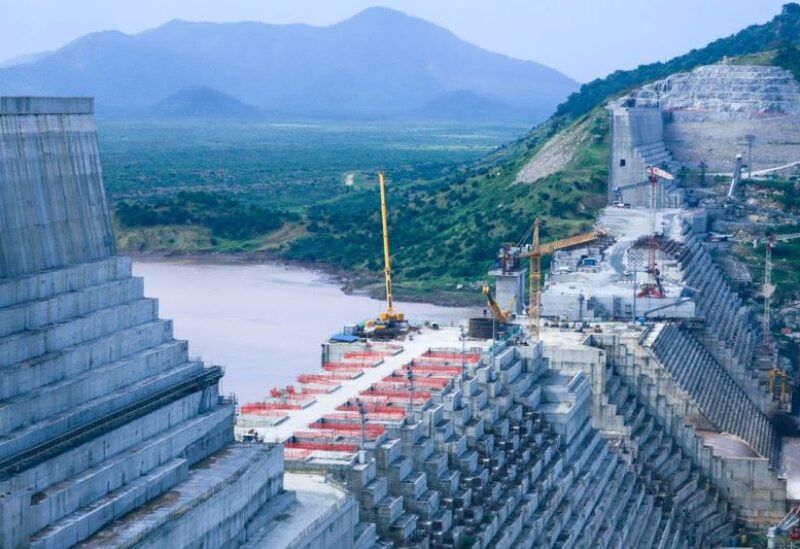
Grand Ethiopian Renaissance Dam (GERD) in Ethiopia
Abbas Sharaki, Egyptian water resources expert and professor of geology, revealed Monday that since starting the third filling operation this year, Ethiopia managed to store up to 7 billion cubic meters of water at 597 meters above sea level.
Addis Ababa began building the GERD on the Blue Nile River in 2011, raising tension with the downstream states, Egypt and Sudan.
It has so far amassed 15 billion cubic meters in the Renaissance Dam lake.
Ethiopia is carrying out the filling for the third straight year. Water is usually collected during the flood season that runs from June until September.
On July 26, Egypt said it received a letter from Ethiopia saying Addis Ababa would continue filling the GERD reservoir during the current flood season – a move opposed by Cairo that it believes is a breach of the obligations imposed by international law.
Sharaki revealed that during this week, half a billion cubic meters of water are being stored every day, while about 70 million cubic meters continue to flow from the two drainage holes towards Sudan and Egypt with an increase of 70 cm in the lake’s level.
Egypt will not be affected by Ethiopia’s filling due to its Aswan High Dam and its water reserves, he assured.
However, he added: “This does not give Ethiopia the right to impose a fait accompli on the two downstream countries. On the contrary, this filling increases Egypt’s commitment to its water rights.”
The Egyptian government is currently working to inaugurate a number of projects to address the country’s water crisis.
Egyptian Minister of Water Resources and Irrigation Mohamed Abdel-Aty said on Monday work is underway to rehabilitate water canals in Upper Egypt with an aim to raise the efficiency of the infrastructure of water facilities.
Meanwhile, Eng. Mohamed Ghanem, the spokesman for the Ministry of Water Resources and Irrigation, said that Egypt produces only 60 billion cubic meters of water, while its needs 114 billion cubic meters per year.